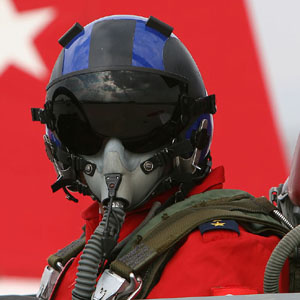Chinese Jet Fighters in Anatolia

How have China and Turkey come this far? Ankara is approaching China for certain reasons. Strained ties with Israel after the Freedom Flotilla incident and the death of 9 Turkish citizens is one main reason for Israel’s no-show at this year’s maneuver. The second and basic reason is the shift in Turkey’s foreign policy, one that started in 1999—a new view to the East, here equal to a sphere that encompasses from Iran to China. Prior to enforcement, the idea had been around for years, even supported by some members of the historically secular, pro-West Turkish military. And Moscow has received its share by cooperation in construction of nuclear power plants for Ankara.
Compared with Russia, Chinese relations with Turkey are in their fetal period. Apart from the Chinese’s relations, ethnic issues were also involved: Ankara has expressed deep discontent with Beijing’s crackdown on Turkic citizens in China, particularly in the Xinjiang province. Ethnic sentiments have subsided however, after the 2009 row between the two countries following China’s heavy-handed response to the Uyghurs’ revolt.
For Beijing, key Middle East states have their unique attractions: Iran with its vast oil reserves, Egypt for its leadership role in the Arab World, and Israel due to its advanced military technology. And now, Turkey has risen as a new influential power in the region, tempting China to strengthen bilateral ties.
Beijing is meanwhile seeking new markets for its fast-growing economy. Turkey could be a new target, so far neglected and mainly supplied by Europe and the US. The growing economy of this country is also a mouth-watering opportunity for the Chinese to move one step further and enter the Turkish market. Ankara and Moscow have signed contracts worth 50 billion dollars, so why can’t Beijing do the same thing?
While Turkey is reorienting its foreign policy, some are skeptical that Ankara’s strategy constitutes a drift away from its traditional alliance with the West. The moderate interpretation, nonetheless, which appears more tenable, is that Turkey is moving its foreign policy in parallel tracks: neither Iran, Russia, nor China are going to replace the EU and the US, rather, they are just new friends, and perhaps a lever to pressure the EU to accelerate the process of admitting Turkey into the European club.
Historically, the military has been the most powerful bastion of Kemalism, traditionally averse toward expansion of ties with the East. A joint maneuver with China sends a signal that is too powerful to be ignored. The Army seems to be getting along with and less resistant to the AK Party’s foreign policy. The development may be also attributed to the new Chief of the General Staff, Ishik Koshaner, who has replaced Ilker Bashbugh, known for his insistence on independence of the Army.
* Rahman Qahremanpour is a fellow researcher in the Center for Middle East Studies.

